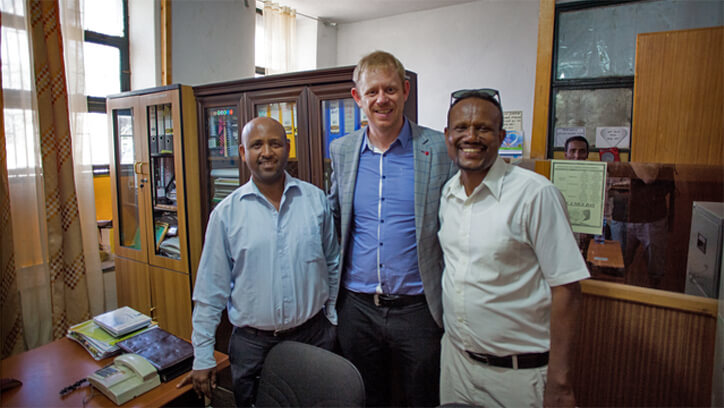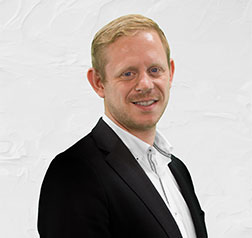EthicalCoach: The Founding Story

Ethical ~ Equitable, fair, just
Coaching ~ a form of development to support the achievement of specific personal or professional goals through training and guidance
EthicalCoach ~ Earned by a select group of professional coaches globally as a marker of their ongoing excellence and attainment of the highest recognized professional standards; their commitment to personal and professional development; as well as their commitment to creating a more just, equitable and inclusive world.
The EthicalCoach movement creates a bridge between executive coaches and humanitarian organizations by proposing executive coaching as a way to address the greatest humanitarian and environmental challenges of our time. In so doing, we affect lasting change, benefitting current and future generations. Applying the tools of coaching to philanthropic efforts creates a platform to really change lives.

EthicalCoach was created by Ben Croft. Creating something that does not yet exist requires incredible vision and dedication.
When Ben founded WBECS, the world’s largest online gathering of business and executive coaches, he was set on a particular path in life.
“Growing up, my family focused on adding value to the world. They taught me to pay attention to others, to work hard and to have love for the world. Above all, I was taught to give back, it is quite literally in my DNA. My parents modeled an ethical life, and my grandmother, who I was very close to, was generous in everything she did.”
As Ben made his way through professional training and education, he read Buckminster Fuller. Fuller flipped Ben’s whole perspective, forever marking a shift in consciousness to not only create success and a positive impact for himself, but for future generations.

“I applied Fuller’s teachings — to look at your strengths, your weaknesses, discover who you are as a person — the opportunities you have in your life, the resources you have available to you — everything that makes you who you are. And then you ask yourself, what is the very best thing you could do for the world?
It’s not easy, sometimes it may take a decade or longer to work that out — but once you figure it out, you should focus as much of your life as you can on that. Relentlessly. That’s your mission, your purpose. And when you do, I discovered a processional effect that supports this mission, a strange yet guiding serendipity.”
With a mission to create and sustain a positive impact on the world, along with the intimate understanding of the power of coaching, Ben began to ask questions that broke down the barriers between coaching and the organizations that were dedicated to making the world a better place.
“What if the highest level of Executive Coaching was accessible to organizations addressing the greatest global challenges of our time? What are the possibilities if the same Coaches behind the success of the top Fortune 500 companies began working with the organizations dedicated to making the world a better place for all of us? One of the most obvious and largest assets, I realized in 2011, was that I was quickly building a large network of fantastic and highly engaged executive coaches. I was working with all these amazing people, all doing important work and I realized that this work had an untapped possibility. This network of executive coaches was the answer to what I could best offer to the the world. For me, the next question was — where can I focus this amazing capability, how can I support my network to collaboratively add the most value? And to whom would they be adding value to? Where was the need?”
The cold harsh truth is that global challenges bear down disproportionately on the most vulnerable, especially on children. “After quite some time considering this, I realized that the biggest need in the world comes collectively from all the people that are served by charities, AND importantly, all those that charities would serve if they had the capacity to do so. If you take all the charities that exist, all the NGOs, all the nonprofits, even the social enterprises, and look at who these people support and strive to serve — they collectively make up the people who generally have the greatest need — people who are starving, may have been sexually abused, people that have disabilities, illnesses or diseases, people who have been badly treated, or are in poverty.”
With clarity of a mission, Ben began crafting a way to bridge his call to action.
“The most leveraged way to do this, as I saw it, was developing people with skills so they can not just engage with and help nonprofits but sustain, build-upon and pass on that knowledge. What if we can actually help organizations with the resources they already have? The fundraising can come later to accelerate the existing well-oiled machine, and when it does come, it goes further. Also, the more efficient and effective the organizations are, the more likely people are to feel more confident and comfortable donating money. … An example of the contribution of EthicalCoach will be to create a culture of personal and team accountability. Most leaders will tell you that it is not a flawed plan that is the problem. It is a lack of follow-through and accountability that creates the greatest obstacles to success.”
The inaugural team of EthicalCoaches are being selected from the very
best of the best.
“The coaches in our network come from successful corporate backgrounds. Most of them could retire if they wanted to, but they would rather use the skills and knowledge they have accrued over time to continue helping people. We have assembled a world-class team and we intend to create a complete resource and road map so that executive coaches are relevant to nonprofits, helping them be more effective and efficient.”
I am convinced all of humanity is born with more gifts than we know.
Buckminster Fuller
“In launching EthicalCoach, we don’t proclaim to have all the answers. We’re just connecting the dots. Who are we not to try? Please join us on this journey of self-discovery as we support each other in leveraging each of our assets to improve the world.”
